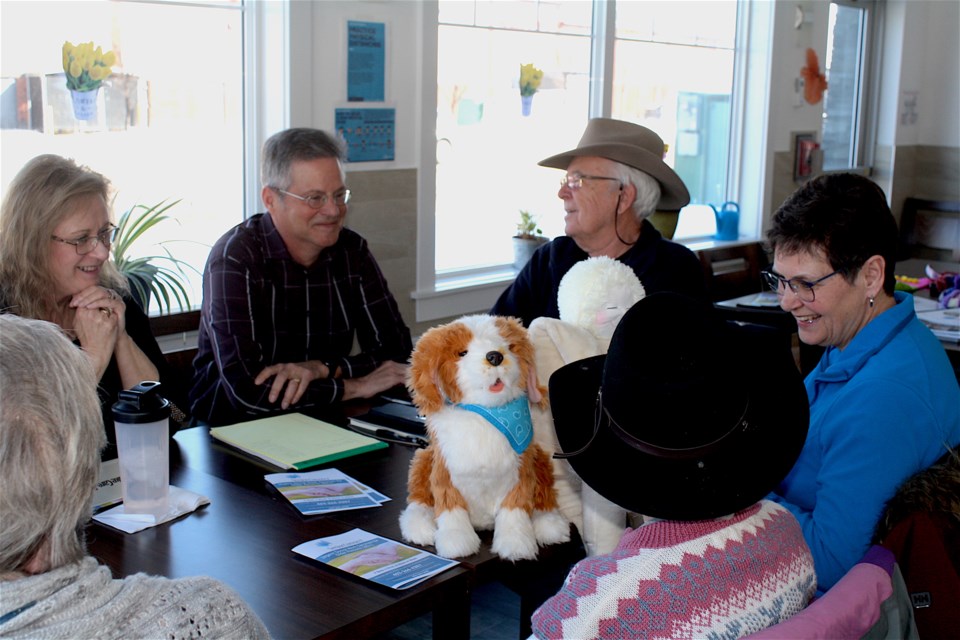It’s the second Conversation Cafe at Lakeshore Manor in Chestermere, aimed at care partners and those living with dementia, and one new member is in attendance. It’s Maria Heringa, and she is looking for support she hasn’t found anywhere else.
“It feels as though we’re just a burden,” said Heringa of the experience she has felt from those closest to her since her husband was diagnosed with dementia six years ago. She says being the primary care to her spouse has left her feeling isolated, so talking about her experiences, and listening to others, has allowed Heringa to discover supports and ideas she hasn’t come across yet.
And this is the purpose of the Cafe.
“It’s a safe environment,” explained Don Montpetit, who helped open the chapter in Chestermere. “Some [locations] do activities and some just get together, have coffee and basically just hold a roundtable discussion and whoever wants to talk can, and whoever wants to listen can listen. “The more I get involved in this I realize for some of the people, it’s really their only outing in the course of the month, so it’s really powerful for people.”
The Chestermere cafe is one of 14 that run in Calgary and the surrounding area. It is free, volunteer-driven with the intent of being supportive, informative and encouraging. The cafes are part of Dementia Network Calgary, with individuals and organizations from the public and nonprofit sectors interested in Alzheimer’s disease and related dementias that include the Alzheimer Society of Calgary, University of Calgary, The United Way, Alberta Health Services and the City of Calgary.
“People outside of this experience don’t truly understand it,” said Helen Puls, co-chair and communications coordinator for Conversation Cafes. She says this is a reason caregiving can be isolating, as some step away when they don't understand or know how to help those going through the experience. “We’re not professionals. We have lived or are living the journey and have compassion … we share, but we also listen.”
While most cafes are held in-person, there are opportunities to connect via zoom as well. With the exception of care partner meetings held monthly, the cafes also provide an experience for those living with dementia to come out as well.
Joan Connor was diagnosed with dementia more than 10 years ago. She, along with her husband, Alan Rae, first experienced this cafe model in 2017 when travelling in the United States and attended a few of the events. After returning to Alberta, the two helped launch Dementia Network Calgary.
“It’s important to bring people out and not to hide,” said Rae, who attends cafe events with his wife. He says going out in public with someone with dementia can bring a certain level of embarrassment, as the person could make a mistake or say the wrong thing. He believes the more support and conversation surrounding dementia, the more acceptance it will bring from the broader public.
Arlene Huhn, Client Services for the Alzheimer Society of Alberta and Northwest Territories, says there are other online support groups running in the afternoon and evenings for care partners in different regions of Alberta. See asantcafe.ca or call 1-866-950-5465 for more information.
“It allows care partners to meet and share stories, have a laugh, have a cry,” she said, explaining that an informal setting is important to allow caregivers a place to feel comfortable.
“As much as there’s professionals … there’s nothing quite like someone living that experience at the same time.”
Though there are support groups that meet in-person, people in rural areas can join online as well. While these meetings are for care providers, Huhn says Edmonton does have an early-stage support group for people with dementia to meet with other people who are living with it too.
For more information on Conversation Cafes and their events, contact https://dementianetworkcalgary.ca/events/ or call 403-290-0110.




